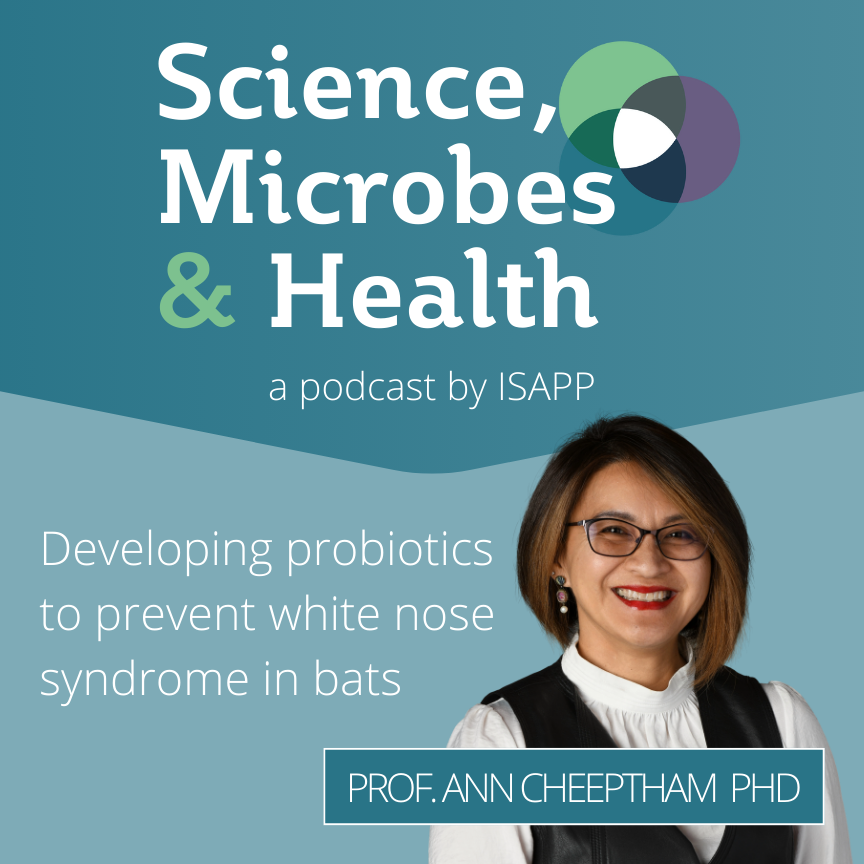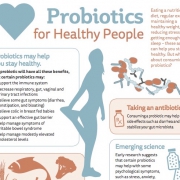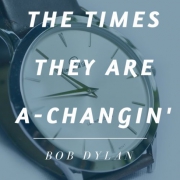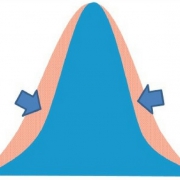Developing probiotics to prevent white nose syndrome in bats, with Prof. Ann Cheeptham PhD

Podcast: Play in new window | Download
Subscribe: Apple Podcasts | Spotify | RSS
This episode features Prof. Naowarat (Ann) Cheeptham, a cave microbiologist from Thompson Rivers University (Canada), speaking about a fungal infection in bats that causes white nose syndrome. She and her collaborators are looking at the microbiomes of the bats and their environments for possible ways to prevent this serious infection. White nose syndrome is caused by Pseudogymnoascus destructans infecting bats in hibernation and causing them to act in unnatural ways. The condition has caused massive death of bats in North America, although not in other regions of the world with the same fungus. Dr. Cheeptham and colleagues are looking for strategies to prevent white nose syndrome. Initially they screened environmental bacteria with activity against the fungus, but had difficulty knowing how to apply these bacteria to the bats. Their current approach is to take four bacterial strains isolated from healthy bats and apply them in bat boxes so they may become established on the vulnerable bats to prevent white nose syndrome. The preventative actions of the bacteria are still under investigation, but the collaborators believe the mechanism is related to metabolite production. This episode is part of a series on the role of biotics in animal health.
Episode abbreviations and links:
- Paper on bat wing microbiomes: DNA Metabarcoding Analyses Reveal Fine-Scale Microbiome Structures on Western Canadian Bat Wings
- Paper on bat wing bacteria with inhibitory action against Pseudogymnoascus destructans: Microbial Isolates with Anti-Pseudogymnoascus destructans Activities from Western Canadian Bat Wings
About Prof. Ann Cheeptham PhD:
Dr. Cheeptham is a professor at the Department of Biological Sciences, Thompson Rivers University, Kamloops, British Columbia, Canada. Her research interests include cave microbiomes/new drug discovery, white-nose syndrome in bats, alternative treatment tools against multidrug-resistant infections, and geomicrobiology. Her work has fortunately been featured in the New York Times, WIRED, Bloomberg TV network’s Spark series, Al Jazeera TV, the CBC’s Nature of Things (The Antibiotic Hunters episode), Global TV (Global 16×9 and Global Health), Knowledge Network, CBC radio (Daybreak) and in several International and Canadian magazines. Besides her passion for cave microbiology and research, she is also drawn to pedagogical issues in microbiology education. Recently, she has been the recipient of the 2022 3M National Teaching Fellowship from the Society for Teaching and Learning in Higher Education (STLHE) and 3M, the 2020 TRU Faculty Excellence Award, and the 2020 D2L Innovation Award in Teaching and Learning STLHE and D2L (Desire2Learn).














